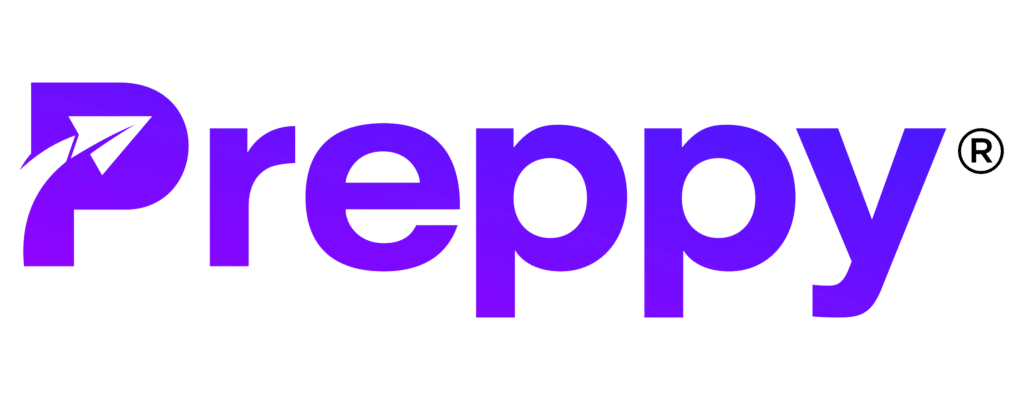If you’re looking to start a healthcare career and are considering the medical assistant role, there are multiple courses available to help you reach your goal.
Medical assistant courses vary in format, duration, and depth of training, allowing students to choose a program suited to their unique schedules, goals, and budgets.
So, in this article, we’ll explore several types of medical assistant courses and discuss the blueprint to become job-ready as a medical assistant.
Moreover, we’ll also discuss what you should avoid while looking for medical assistant courses, and what you should really look for.
Lastly, we’ll introduce a self-paced program that could make you job-ready as a medical assistant without driving to college or without any student loan debt from the comfort of your home.
So, let’s get started.

Medical Assistant Training Courses
Choosing the right educational path to become a medical assistant depends on your goals, available time, and financial situation.
Medical assistant programs vary widely, from in-depth degree programs to fast-paced certificate courses, each offering unique benefits and suited for different types of learners.
Whether you’re looking for extensive training for career advancement or an accelerated route into the workforce, there’s a program to suit your needs.
Here’s an overview of the primary types of medical assistant classes available:
Associate Degree Course
An associate degree is an undergraduate academic degree awarded by colleges, universities, and community colleges. They typically take about two years of full-time study.
For those attending part-time, completion time may vary depending on course load and schedule flexibility.
The cost of an associate degree can vary based on the institution, typically ranging from $10,000 to $40,000. Fees for textbooks, lab use, and clinical practice may add to the overall expense.
Why is an Associate Degree Valued?
One of the reasons a medical assistant associate degree holds value is that it often comes with a university certificate upon completion.
This certificate serves as a formal credential from a recognized institution, signaling to employers that you have completed a degree program.
A university certificate not only enhances your resume but also assures potential employers that you’ve been trained to meet industry standards.
It’s a mark of credibility that sets you apart in a competitive job market, particularly in fields like healthcare.
Problems of Associate Degree Courses
While an associate degree can open doors to better career opportunities, it’s not without its challenges.
You could face barriers that can make pursuing and completing an associate’s degree difficult.
Let’s explore some of the key issues associated with associate degree programs:
#1 Expensive Cost
Pursuing an associate degree often comes with a hefty price tag, ranging between $10,000 to $40,000 depending on the institution.
Beyond tuition, students must account for additional expenses such as textbooks, transportation, and fees, which can significantly increase the overall cost.
For many, this can result in student loan debt, creating financial stress that lasts long after graduation. While some programs offer financial aid, affordability remains a significant concern for many.
#2 Longer Duration
Associate degree programs generally require two years of full-time study to complete, which can be a challenge for those eager to join the workforce quickly.
For adults managing work or family commitments, this longer timeline may feel impractical or unattainable.
Even part-time study options, while more flexible, can extend the duration further, delaying the benefits of career advancement or higher earnings.
#3 Not Adult-Friendly
Traditional associate degree programs often operate on a fixed schedule with set class times, which can be problematic for adults balancing other priorities like work, childcare, or personal responsibilities.
Missing classes can lead to falling behind in coursework, and many institutions have strict attendance policies.
The rigid nature of these programs doesn’t accommodate the unpredictable demands of adult life, making it harder for non-traditional students to succeed.
Certificate Programs
Certificate programs are typically offered at community colleges, technical schools, and career institutes. They are focused and designed to equip students with essential skills in medical assisting.
Unlike degree programs, certificate courses allow students to concentrate directly on job-relevant skills. Many certificate programs include externships, giving students hands-on experience.
These programs generally take 9 to 12 months, making them a faster route into the medical assisting field compared to associate’s degrees.
Certificate programs are often more affordable, with tuition typically ranging between $1,000 and $5,000. However, community colleges may offer more budget-friendly options than private institutions.
Online Programs
For students needing maximum flexibility, online medical assistant programs allow learners to study at their own pace from home, accommodating work or family obligations.
Some online courses also include externship opportunities to ensure students gain practical experience, making online options a convenient way to become certification-ready.
Online programs can typically be completed faster within 4 to 12 months, though some self-paced formats enable students to finish sooner.
Tuition for online programs is very affordable, and usually falls between $1,500 and $6,000.
Many online schools offer flexible payment options, and the cost often includes learning materials like digital textbooks.
On-the-Job Training
In some rare cases, healthcare facilities may offer on-the-job training for aspiring medical assistants, providing instruction on essential tasks while offering a paycheck.
However, this approach may lack the structured knowledge of formal programs, so it might not fully prepare you for certification exams, which many employers now prefer.
The duration of such programs varies from 4 weeks to several months, depending on the employer and the required skills. Some facilities might ask for a commitment to work for a set period after training as a form of repayment.
The Blueprint to Become Job-Ready as a Medical Assistant

If you want to start a career as a medical assistant, then it requires a balanced combination of education, hands-on experience, certification, and essential skills.
These four key areas are the foundation of this career, and they are what employers look for when hiring.
So, if you have these 4 critical things, rest assured, you’ll have a successful career in medical assisting.
Here’s a breakdown of each component:
#1 Right Education
The right program provides a well-rounded education in medical assisting, covering topics such as medical terminology, anatomy, office procedures, and patient care skills.
These programs are widely recognized by employers, ensuring that students have received quality, industry-standard education.
These programs often combine theoretical study with clinical practice through externships, giving students the perfect foundation needed to succeed.
#2 Experience
In addition to academic learning, clinical experience is critical for becoming job-ready as a medical assistant.
Some programs offer externship opportunities or clinical rotations, where students work in actual healthcare settings under the supervision of professionals.
This hands-on experience allows them to apply their knowledge in real scenarios, familiarizing themselves with workplace dynamics and patient interactions.
Clinical experience boosts confidence and demonstrates to potential employers that you’re ready to handle the demands of a medical assistant role.
#3 Getting Certified
Obtaining certification can be a powerful tool for advancing a career in medical assisting.
Certifications like the Certified Clinical Medical Assistant (CCMA) through NHA show that a candidate meets national standards for competency.
Getting certified confirms your dedication to the field and assures employers that you possess the required knowledge and skills to start a career as a medical assistant.
This is where education, the program you’re enrolled in, and having real-world knowledge through an externship opportunity play a huge role.
#4 Skills
Medical assisting requires a diverse skill set, including technical, clinical, and interpersonal skills.
Technical skills, like handling medical instruments or performing basic laboratory tests, are complemented by clinical skills in areas such as patient care, administering injections, and taking vital signs.
Equally important are soft skills, such as communication, empathy, and organization, which help medical assistants effectively interact with patients and work seamlessly within a team.
Developing these skills through both training and practical experience prepares you for the everyday tasks of a medical assistant and contributes to a positive work environment.
Medical Assistant Courses – AVOID THESE COMMON MISTAKES!
To start a medical assistant career, you need to enroll in a medical assistant course.
However, it’s crucial to choose the right course carefully, as mistakes in training can limit your opportunities.
Here’s a breakdown of what to avoid so you’re set up for a strong start in your medical assisting career.
#1 Enrolling in a Random Course
Not all medical assistant courses are created equal. Some may lack key features like externship or a well-rounded education.
Choosing a program without carefully researching its credibility, reputation, and course content can lead to wasted time and money.
A reputable program should provide thorough training, preparing you with the necessary clinical and administrative skills, and ideally lead to an accredited certification.
Start by ensuring the program aligns with industry standards so you could get certified as a medical assistant.
#2 Assuming “University Certificates Are Outdated”
Not having a university certificate is marketed as a cool thing. In some fields, university certificates might not be a primary requirement, but healthcare is different.
In healthcare, university certificates are preferred and required. University-backed certifications provide a level of trust and credibility that many employers in the healthcare industry look for when hiring.
A university certificate signifies that your education has met rigorous standards. Additionally, healthcare employers often prioritize candidates who have completed programs affiliated with recognized universities, as this reflects a reputable and comprehensive educational experience.
#3 Relying on “You Can Gain Experience On-the-Job”
On-the-job training might sound appealing, but healthcare facilities generally don’t have the time or resources to fully train new hires from scratch.
It’s essential to have prior hands-on experience before entering a job, which is why externships are so valuable.
The practical experience offered by externships is fundamental for developing skills in real healthcare environments, and programs that include them are usually more thorough.
A medical assistant externship helps you learn about day-to-day responsibilities, patient interaction, and clinical tasks in a guided, supportive setting — and it’s expected by most employers.
#4 Not Prioritizing “Certification-Ready” Courses
For many healthcare facilities, certification is more than just a preference; it’s often a requirement.
A certification-ready course ensures that the curriculum aligns with the expectations of certification bodies, helping you feel fully prepared when it’s time to take your certification exam.
Without this preparation, you may find the exam challenging or feel underprepared in the job market.
Programs that focus on becoming certification-ready provide specific training for exams like the CCMA (Certified Clinical Medical Assistant), which can greatly enhance your employability.
#5 Choosing Cheap and Ultra-Fast Courses
While short courses might seem tempting, beware of options that promise unrealistic timelines. Medical assisting requires a solid foundation in both knowledge and hands-on practice, and ultra-short programs often skim essential details.
While completing a course quickly may be convenient, rushing through important content can result in gaps in your skills and understanding. Employers often recognize the limitations of such programs, which may impact your ability to secure a job.
Quality programs take time to ensure you’re fully prepared for real-world demands, so look for a course that balances speed with comprehensive training.
So, becoming a medical assistant requires a well-rounded education, practical experience, and a commitment to meeting certification standards.
Avoid shortcuts like medical assistant 4-week courses, and thoroughly vet any program before enrolling to ensure it sets you up for a fulfilling healthcare career.
What Should You Do to Choose the Best Medical Assistant Program?

Choosing the right medical assistant course can set you on a successful path in the healthcare field.
Here are the essential elements to consider when selecting your program to ensure you gain quality training, career readiness, and value for your investment.
Let’s begin:
#1 Choose Courses that Award a University Certificate
A university certificate adds value to your resume, showcasing your completion of a credible, high-quality program that meets healthcare industry standards.
Many employers in healthcare look for candidates with certifications from reputable institutions, as it assures them that the graduate is well-prepared for the field.
#2 Look for Programs Offering Clinical Experience
Hands-on experience is essential to develop the practical skills medical assistants need. Programs that include externships or clinical placements provide real-world training that employers value highly.
These opportunities allow you to apply classroom knowledge, build confidence, and become familiar with the workflows in a healthcare setting.
#3 Ensure the Course Prepares You for Certification
Certification is an important credential in the medical assistant profession, with certifications like CCMA by NHA adding considerable value to your qualifications.
Choose a course that covers the exam content thoroughly, so you’re well-prepared to pass and stand out in the job market.
#4 Prioritize Affordability, Speed, and Adult-Friendly Options
Cost and flexibility are critical, especially for those balancing work, family, or other commitments. Look for programs that offer reasonable tuition, self-paced schedules, and online learning options.
Courses that balance affordability and a manageable timeline are ideal for adults who need flexibility without sacrificing quality.
Get all of these with Preppy
For an all-in-one solution, Preppy’s Self-Paced Medical Assistant Program meets each of these criteria. This program is affordable, accredited, certification-focused, and includes an externship for clinical experience.
INTRODUCING – Preppy’s Self-Paced Medical Assistant Training Course
If you’re seeking a medical assistant training program that’s fast, affordable, and flexible, Preppy’s Self-Paced Medical Assistant Training Program could be the perfect fit.
Designed for those juggling multiple commitments, this self-paced program helps you gain the skills and qualifications needed to excel in a medical assisting career.
Here’s what you get with Preppy:

100% Online and Self-Paced Format
Preppy’s fully online, self-paced program is ideal for students who have responsibilities and need flexibility.
Unlike traditional programs with rigid class schedules and physical attendance requirements, Preppy’s program empowers students to learn at their own pace.
This means you could complete the course in a few months if desired or take additional time. This adaptable model makes it easier for working adults, parents, and other busy individuals to progress without disrupting their routines or facing commute-related challenges.
University Certificate
Graduates of Preppy’s program receive a certificate from Auburn University, a highly respected, accredited institution.
This certification not only boosts your resume’s appeal but assures potential employers that you have completed quality, university-approved training.
It could give you a notable edge in the competitive healthcare field with enhanced job prospects.
You Could Become CCMA Certification-Ready
Preppy’s curriculum is meticulously structured so you could become ready for the Certified Clinical Medical Assistant (CCMA) exam, an essential and widely respected credential provided by the National Healthcareer Association (NHA).
This certification is highly valued by employers across the country and significantly strengthens both employment opportunities and earning potential.
Clinical Experience Opportunity
One key component that sets Preppy apart is its externship opportunity, which provides students with essential hands-on experience in a healthcare environment.
This real-world training is coordinated near the student’s location, adding both convenience and practical exposure that reinforces theoretical knowledge.
Gaining this experience is invaluable for building confidence, mastering technical skills, and fully preparing for the demands of a clinical role.
Affordable and Accessible Tuition
At a tuition cost of only $1,599, Preppy’s program stands out as one of the most affordable pathways to a medical assistant certification.
By comparison, traditional programs range from $7,000 to $40,000, making Preppy a budget-friendly alternative that spares students from significant student loan debt.
Preppy’s financial accessibility ensures that you could achieve your career goals without student loan debt and enter the workforce sooner with less financial stress.
Faster Completion
Preppy’s accelerated format allows students to complete their training in as little as four months, far faster than the traditional two-year completion.
This shortened duration enables students to begin their careers sooner, making it an ideal option for those eager to start working in the healthcare field.
24/7 Support for Student Success
Understanding that online education can sometimes feel isolating, Preppy provides round-the-clock support to its students.
Whether you need academic guidance, technical assistance, or help with the course material, Preppy’s dedicated support team is available at any time.
Bonus Benefit: Free Laptop
To further enhance convenience, Preppy offers a free laptop to students who enroll and pay their tuition in full.
This laptop not only aids with coursework throughout the program but is yours to keep even after graduation.
So, Preppy’s Self-Paced Medical Assistant Training Program could be an exceptional choice for aspiring medical assistants who need a blend of flexibility, affordability, and comprehensive education.
Preppy equips students with everything they need to launch a successful career in healthcare.
Conclusion
We hope this article could help you understand the various types of medical assistant courses and what you should look for in a medical assistant course.
Selecting the right medical assistant course is a critical step toward a rewarding healthcare career.
Whether you prefer a more in-depth education, need the flexibility of online learning, or are interested in gaining experience on the job, there’s a course format to suit your goals and schedule.
Ultimately, for those seeking a balance of flexibility, affordability, and comprehensive training, self-paced programs like Preppy’s Medical Assistant Training Program could offer a modern solution.
Also Read: How to Get Medical Assistant Training With a Full-Time Job
About:
Preppy was founded by higher education expert, Grant Aldrich, whose work on college affordability and accessibility has been featured in Forbes, Bloomberg Businessweek, Business Insider, American Express, AOL, MSN, Thrive Global, Reader’s Digest, Inside Higher Ed, Evolllution, EducationDive, and nearly 100 radio shows and podcasts.
Time is money. Instead of programs that could take 2 years, Preppy provides you with education in a few months through immersive online training.
Healthcare, IT, Business, Trades…Preppy gets you ready for the trending careers in our modern economy.
Our team of higher education and startup veterans has created the best solution so everyone can obtain the emerging careers of today and tomorrow.
We look forward to speaking with you. You may also call 800-729-1317
Medical assistant





